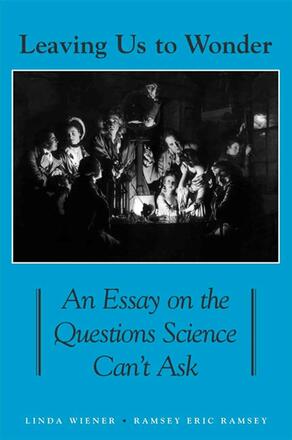
Leaving Us to Wonder
An Essay on the Questions Science Can't Ask
Alternative formats available from:
Explores the larger social, political, and philosophical contexts in which the current vitriolic science vs. anti-science debates occur.
Description
This exciting collaboration between a biologist and a philosopher explores the meaning of the scientific worldview and how it plays out in our everyday lives. The authors investigate alternatives to scientism, the view that science is the proper and exclusive foundation for thinking about and answering every question. They ask: Does the current technoscientific worldview threaten the pursuit of living well? Do the facts procured by technoscientific systems render inconsequential our lived experiences, the wisdom of ancient and contemporary philosophical insight, and the promise offered by time-honored religious beliefs? Drawing on important Western thinkers, including Kant, Nietzsche, Darwin, Heidegger, and others, Linda Wiener and Ramsey Eric Ramsey demonstrate how many of the claims and conclusions of technoscience can and should be challenged. They offer ways of thinking about science in a larger context that respect scientific practice, while taking seriously alternative philosophical modes of thought whose aims are freedom, the good life, and living well.
Linda Wiener is Faculty with Tenure at St. John's College at Santa Fe. Ramsey Eric Ramsey is a philosopher and Associate Dean of The Barrett Honors College at Arizona State University West.